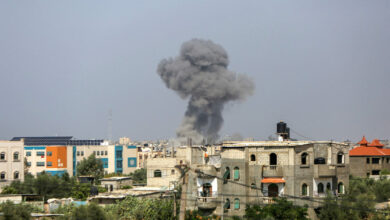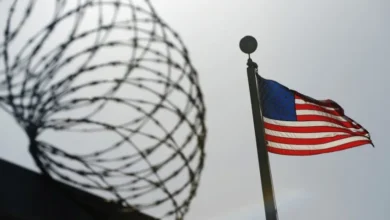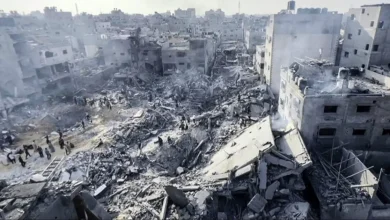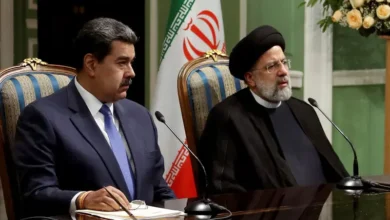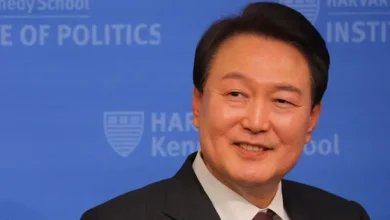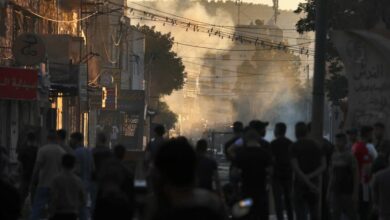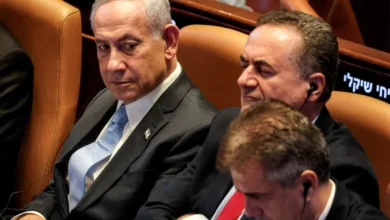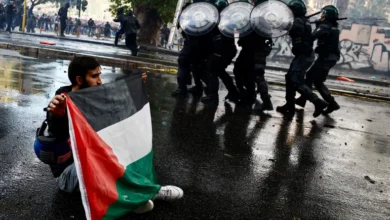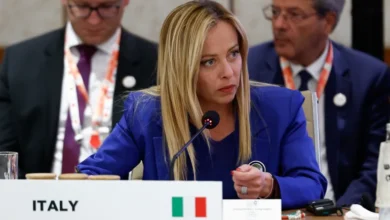A guard told me, ‘We will shoot you’: Life in a Donetsk prison
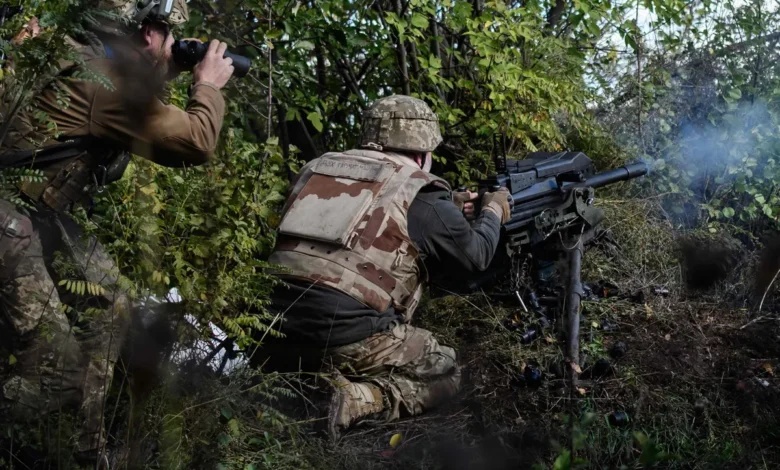
Natalya Zelenina, who hails from Donetsk in Ukraine, was 35 when she stopped using hard drugs and began opioid substitution therapy (OST).
She then became a social worker and spent her days helping others who wanted to quit street drugs.
In 2017, as she travelled around eastern Ukraine for work, she was stopped on the border of Donetsk by Russia-backed separatists who had seized the region three years earlier.
The so-called Donetsk People’s Republic (DPR) is recognised globally as Ukraine’s territory but has been run by pro-Kremlin rebels since 2014 when Russia occupied Crimea and threw its support behind separatists in Donetsk and the neighbouring Luhansk region.
The rebel officials accused Zelenina of drug trafficking, and after a trial she says was a sham, she was sentenced to 11 years in prison.
When Russia invaded Ukraine on February 24 last year, Zelenina feared her chances of a pardon had shrunk to zero.
But on October 17, the Donetsk native was among 108 women freed from Russian captivity in a prisoner exchange.
As the war stretches into its 12th month, Zelenina has returned to social work in Kramatorsk, a Ukrainian-controlled city in northern Donetsk.
This is her story, as told to Al Jazeera:
I used drugs for 15 years – hard drugs, opioids. When I started opioid substitution therapy, OST, in 2006, my life changed completely. I refused to get any more street drugs.
In 2015, the DPR state began to track harm reduction organisations. They threatened us. We had to close that office and move.
Then on November 4, 2017, I was crossing the checkpoint in Olenivka, headed to Donetsk. I was carrying prescribed buprenorphine for myself and one other patient. They told me I was carrying illegal substances.
I was interrogated for three days in the Donetsk police station, and they [the self-appointed DPR authorities] took all my medicine. Soon, I felt very, very bad due to the withdrawal. It was really painful.
I couldn’t control my thoughts. I fell down and lost consciousness at one point. They didn’t feed me, and the most they’d do was give me a tiny amount of water.
Initially, they wanted me to sign a paper saying I’d bought the drugs illegally and was trying to sell them in Donetsk, but I refused.
That’s why they banned me from seeing my mother and nephew. They said I had to confess, or I’d go to jail for 25 years.
But I can’t admit to what I didn’t do. I was acting within the framework of Ukrainian law, so everything was legal.
They brought in a boy who was addicted to drugs and beat him in front of me. They said it would be the same with me if I didn’t sign the documents.
After three days, they put me in a temporary detention centre. By that time, I understood it was serious. They weren’t going to just let me go. I felt there was not enough air. When I was brought to this detention centre, I just couldn’t breathe.
On my third day in the detention centre, they charged me with drug trafficking. I didn’t really expect a fair trial.
When you are in prison, you perceive things in a very different way, so I had really severe depression. I wasn’t able to sleep. It could have been much worse.
In prison, I saw people who fainted or felt really bad because they didn’t receive proper treatment. And I wasn’t receiving OST or antiretroviral therapy [ART].
My ART was interrupted for three months. In prison, they wanted me to sign a document saying I’d refused to take the therapy, but I wouldn’t sign. After three months, my mother helped. She went to my doctor and made sure I could access my medicine.
The biggest thing was the depression. I felt really depressed, really weak. I just wanted to lie on my bed all day and do nothing. I didn’t really want to eat. Sometimes I drank coffee. I was just waiting for evening when I would call my mother and nephew, to hear their voices.
Calls were not officially allowed, but if you knew people and had money for bribes, then you could buy a phone and hide it.
